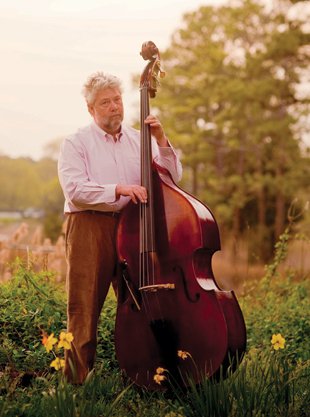A legal thriller in the South explores how female roles in society shift with each generation.

Family Law, by Gin Phillips. Viking. 304 pp. $26.00.
If Harper Lee had been possessed by Virginia Woolf’s ghost, Family Law might have been her third novel. Dealing with a principled and outspoken lawyer (Atticus Finch much) who is not only female but has a room of her own, this legal thriller explores the role of women in southern society. At a time and in a place (1980s Alabama) where female lawyers are unimaginable, Lucia Gilbert is considered an exotic species—or perhaps to some, an invasive one. When sheltered teen Rachel Morris goes with her mother, Margaret, to find a divorce lawyer, the young girl is starstruck by the contrast not only in outward confidence but in the cognitive aspects between the two women.
So spellbound is Rachel that she plays Nancy Drew to find out where Lucia lives, and one day knocks on the lawyer’s door—initiating a strange, memorable, even dangerous relationship. As with her previous novel Fierce Kingdom (2017), Gin Phillips explores the relationship between two main characters with an age difference. Not only that, but Family Law delves into what happens when a girl is stuck between a parental figure who watches Hart to Hart and a career woman who’s named Woman of the Year by the Montgomery Country Women’s Alliance. Of course, we also get insights into Lucia’s own struggles of coping with threats to her person. But when these threats turn into deeds and endanger Rachel, a line is drawn by Margaret Morris—a mother acting more out of jealousy than mere maternal instincts.
Gin Phillips portrayed the bond between mother and child so well in her previous work. However, she was dealing with a much shorter period of time—a single day, not several years as in this book. Though the scenes of Lucia, her husband Evan, and Rachel sitting together in the living room drinking ginger ale are charming and have an innocent air to them, there isn’t enough meat to their more mature relationship a few chapters later. But perhaps this is purposeful, meant to show how childhood fixations dissipate or become disillusioned as time goes on. Yet, that cannot be it, for Rachel still idolizes the lawyer into her high school years. And so it would seem that even a mother’s forced separation cannot truly tear the twosome’s tether asunder.
As the halfway point is pushed past, Rachel becomes more center stage. (There’s also the fact that her narrative is told in the first person whereas Lucia’s is, oddly, almost at a distance in the third person. Whose story is this anyways?) Well for now, Family Law delves into Rachel’s teenage awakening. The whole setup of her questioning her place as a female in various situations is important but seems a bit lacking, a bit underfed—like a ghost. For example: there’s a scene at one of those stereotypical high school parties—the sort that I certainly never got invited to or even really heard about—where boys and girls are kissing and drinking and what have you (dangerous times for mother Morris no doubt). The only saving grace is the amusing originality of purse-bowling—you know, using purses as pins and as well as bowling balls. Yet, what happens after (or what the reader supposes happens behind closed doors and unwritten pages) is nothing new or disturbing. In this case, I wanted more conflict than just, “The pleasure of that touch knocked the fear out of me.” Where’s the drama? Where’s the struggle of internal emotions? There doesn’t seem to be enough external action to propel internal, cognitive change or reaction.
What the reader is meant to get out of this petite tableau is that Rachel is becoming more like her idol, with “never a pause” in what she does. If anything, her meetings with her neighbor, Grant Cleary, are more productive and parallel Lucia’s and Evan’s own partnership stippled with joky, jovial banter. By productive, I mean that they produce more substance for the reader to digest and consider.
The pair play around with the idea that “all teenage girls have the same brain,” which is more than we get from the previously mentioned game of unorthodox bowling. Towards the end of the book, where Grant gets grabby, the relationship reminded me of Ava and the Bird Man’s from Karen Russell’s Swamplandia!. There was a sort of realization that relationships are no picnics; you have to work at them and, you know, not cheat on your spouse.
The end of the book is all drama (there we go!) with wine bottles being flung at cars and dogs dashing about in the street. Once again, our focus is on the women in this story, Rachel, Lucia, and Donna (Lucia’s friend). Gin Phillips wants the reader to see that not all women are victims, that there are some women who instigate trouble for selfish reasons. This, naturally, makes for great reading. Family Law brings together two characters and jockeys them around, showing how a younger generation can follow and then become someone other than mommy’s little girl.
Buy it at The Bookshop.org.









